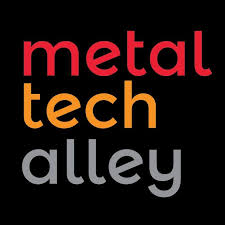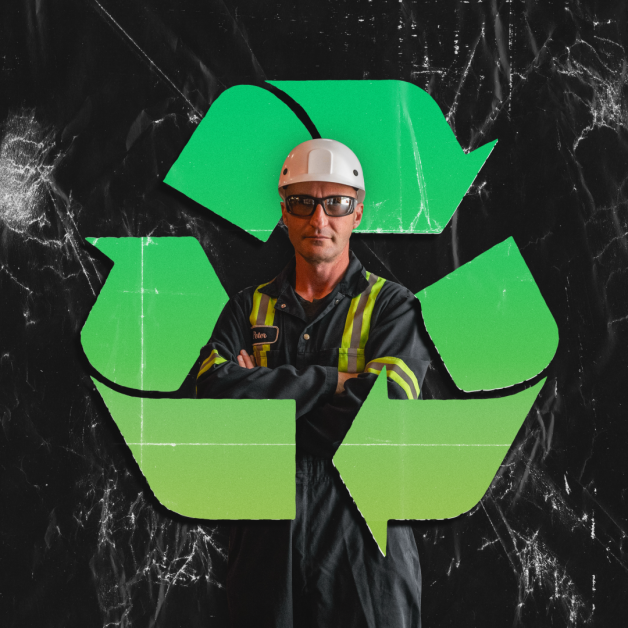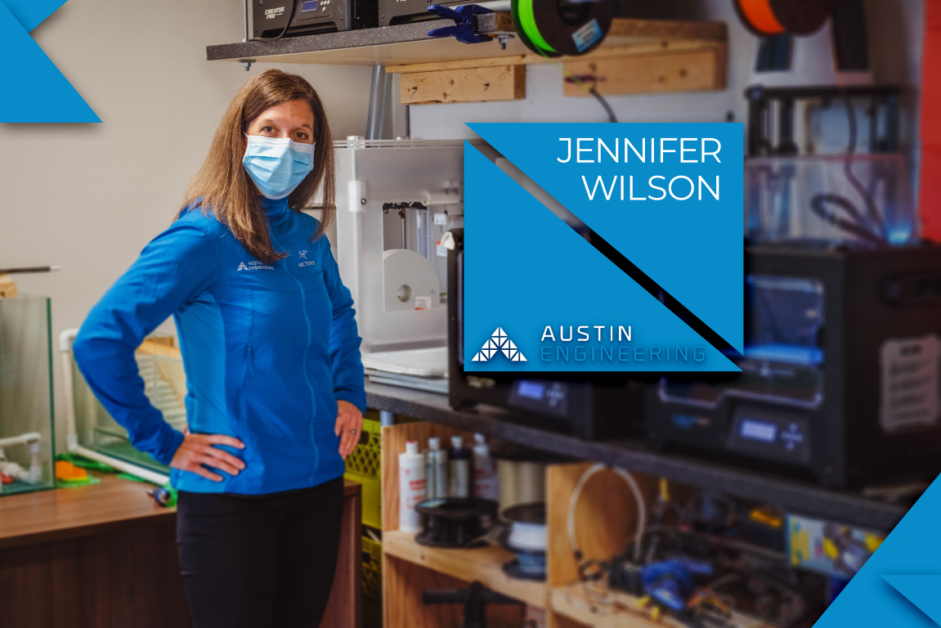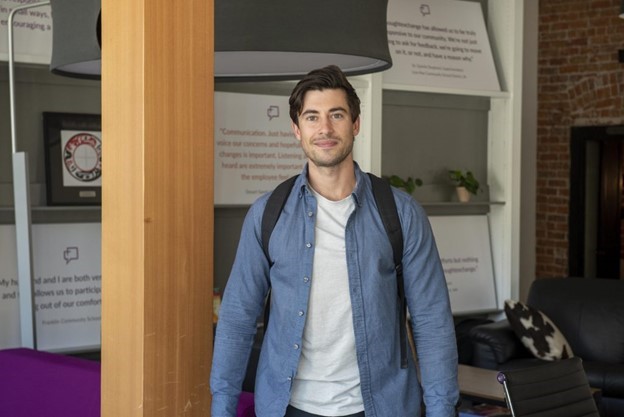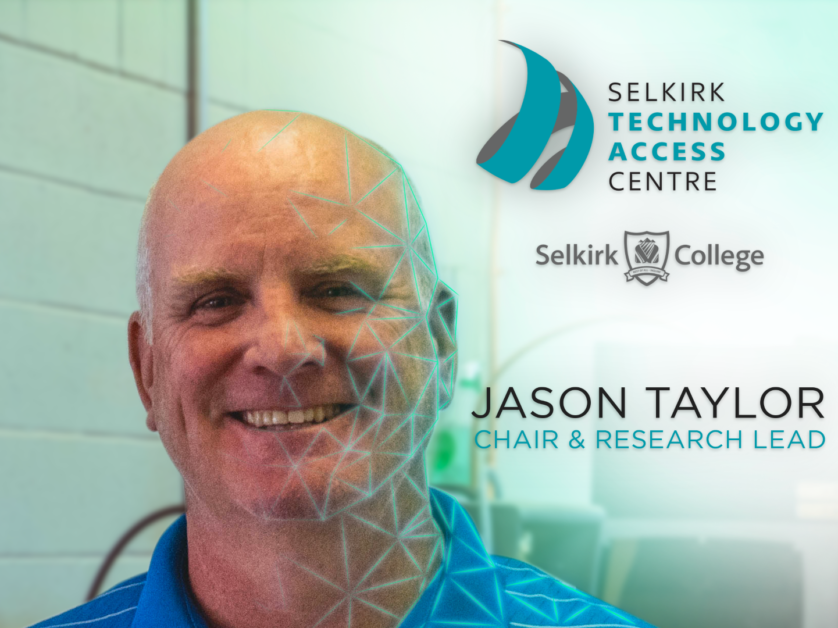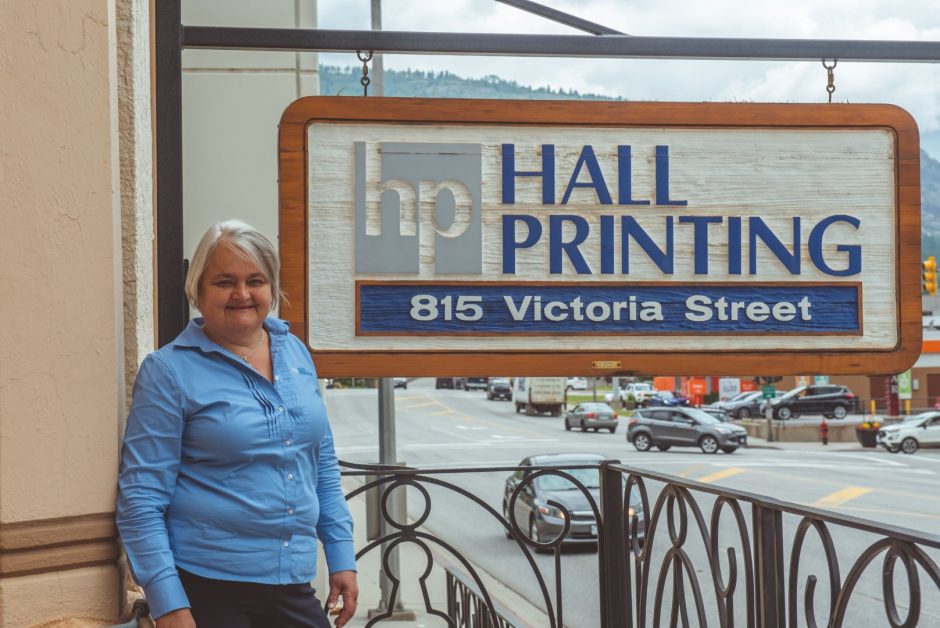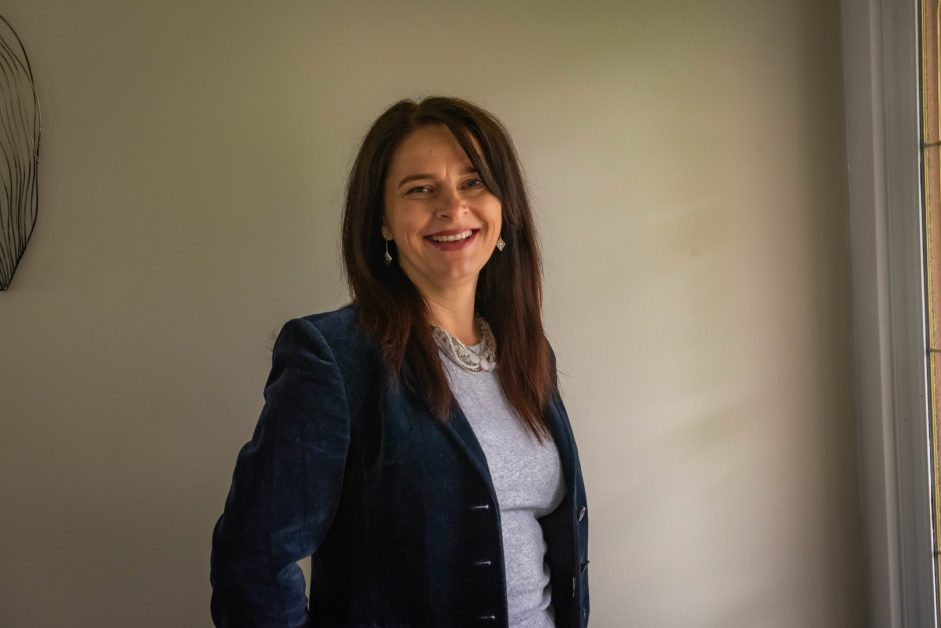Pete Stamper traded in his business suit for coveralls and a respirator when he moved to the Lower Columbia from Seattle, WA to become KC Recycling’s General Manager (GM).
The primed professional is comfortable working at ground level operations, especially excelling at leading global manufacturing companies through ownership transitions and turnarounds. Last March, Stamper was brought onboard as part-owner and GM of the industrial operation. With a track record that boasts successfully deploying the Toyota Production System operating principles and lean manufacturing, Stamper is already implementing a system with components designed for achieving higher quality, lower costs, more efficiency, and happier people. His experience stretches across multiple industries worldwide, including medical, automotive, aerospace, and many other sectors. Through all of this, his focus has been on small businesses that have a manufacturing component. KC Recycling has grown from humble beginnings in 1977 to become the largest lead-acid battery recycler in the Pacific Northwest. Stamper is finding his new line of work meaningful in many ways – from employing 70 people in the region and contributing to the economy, to aiming for the highest safety and environmental standards. He sees lead recycling in North America as a big success story, and KC Recycling as a considerable player in that field. Drawn to the company’s unique position in the Northwest and the partnership KC has with Teck, Stamper is scaling the recycling industry, making better choices for the environment, and growing the circular economy right here in Metal Tech Alley.
Tell us about KC Recycling.
We recycle hazardous materials; there are three different parts to that. The first is car batteries; a battery contains lead, acid, and plastic, so we separate it into three products and then move those to places that further recycle them.
The second part is the electronic scraps. Have you ever taken old electronics – like DVD players, TVs, or phones – to a collection site like Best Buy or a bottle depot? A quarter of British Columbia’s electronic scrap comes to us and we take it apart. We remove the hazardous materials – some things have mercury in them or batteries that could explode or contaminate – and we dispose of them correctly. We separate the stuff that’s valuable, like plastic and metals and circuit boards, and send to other recyclers to process.
The third part is CRT (cathode-ray tube) glass, like from old TV sets. Old TV sets give off radiation, so they actually have lead in the glass to protect the people using them. We take the CRT glass, grind it up, and then send it with the lead. The lead is extracted to be reused in batteries.
I understand you process CRT glass for all of North America – is that correct? Do you specialize in anything else?
Right now we process CRT glass for all of Canada and the Northwest. Anyone who does electronic scrap recycling in Canada sends us the glass. Historically we were the facility for Western Canada and the American Pacific Northwest, but when the smelter in Belledune, New Brunswick closed down late last year much of the material that was going there from Ontario and Quebec was redirected to us. So we doubled our production overnight; truckloads of glass just started showing up.
As for another specialty, from a geographic standpoint, we’re the only battery recycler in the West of North America, except for one facility in Los Angeles. Even though automotive batteries are a strongly recycled product – there’s a lot of recycling capacity in the East and in Mexico, for example – there are no other battery breakers in the West. What we do involves a lot of specialized knowledge and equipment. It’s called battery breaking because it requires physically breaking batteries into their components and sorting it all. This side of the continent has grown a lot faster than anywhere else, which means more batteries to recycle, so what we do is in very high demand. It’s hard, dealing with hazardous materials like lead and acid while respecting health and environmental concerns, but that’s probably our number one specialty.
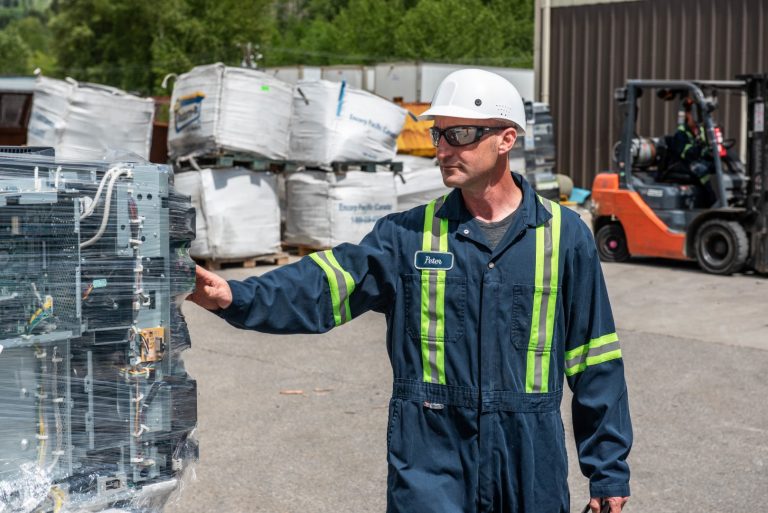
Why is Metal Tech Alley or the Lower Columbia an ideal location for KC?
Here in Trail and the surrounding area, there’s real competency around dealing with lead and other hazardous materials. Everyone has their own equipment and knows how to do it safely, so nobody’s intimidated by hazardous material – fundamentally that’s unique here.
The proximity to Teck is really beneficial, too. They’re a big producer and consumer of products. And another unique thing about our location is the rail line. There’s only a couple of places where the rail crosses from Canada to the U.S., and one of them is here. Lead is heavy and best suited to ship by rail.
Can you explain how KC Recycling demonstrates a circular economy?
Sure – let’s talk about automotive batteries, since that process is a great role model for a circular economy. Automotive batteries contain lead, which is important to recycle for two reasons: one, it’s valuable, and two, it’s hazardous. The industry evolved to develop a process by which the batteries come back to the manufacturers. Whenever you buy a car battery, you’re charged an extra $15 if you don’t give back the dead battery you’re replacing. It’s called a core charge. It makes sure batteries are getting exchanged, and it pays for the batteries to go all the way back through the circular economy.
We work with a US-based battery manufacturer; they get the lead for their batteries from Teck, and Teck gets the lead from us. We extract that lead from the dead batteries that came from the manufacturer. Literally, there are rail cars of dead batteries coming to us from across the border. We take them apart, send the lead to Teck, they put it through the smelter to make it high-grade and send it back to the manufacturer, and it just continues that way. The manufacturer sends their batteries to different retail distributors, and when they sell a shipment of batteries, they get back a shipment of dead batteries, which make their way to us. That’s fantastic, right? That’s how it should work. Ninety-nine per cent of the lead in North America is recycled; almost none of it is lost. But not everything is valuable and not everything is hazardous, so when you don’t have those factors, the infrastructure to drive this type of circular process isn’t there.
I’d like to say that it will happen across other industries, but it certainly requires a functioning public policy system to go beyond valuable products. For example, it’s very common to talk about building this process into plastics. We actually deal with recycled plastics; battery casings are a valuable plastic, but they still don’t go back to the battery manufacturers because it’s not quite valuable enough. We take the plastic, we clean it, we grind it up into a sellable product, and we sell it to another plastic recycler who blends it with other plastics to make another new plastic and sell it again. But with the right policies and systems in place, we could theoretically make everything circular. As it stands now, even the battery acid isn’t circular; the acid we extract goes to Teck, and they turn it into another product, such as fertilizer – so it’s being reused, but it doesn’t go back to the battery manufacturer with the lead. Wouldn’t it be nice if a rail car of lead was followed by a rail car of acid, and one of plastic?
These are solvable problems. It’s just that the economics alone don’t drive it. As a community we have to want to make it happen. We have to put the regulations and incentives in place to make it work, and once it’s set up, it can work very well – we’ve proven that with lead. I was recently asked to join the LCIC board to offer my perspective on the circular economy, as KC Recycling is one of the largest recyclers in the area. I’m passionate about small business and believe that the Lower Columbia is a fantastic place to build a business. The remoteness of our region presents some unique challenges, and I look forward to partnering with other business leaders to collectively address these.
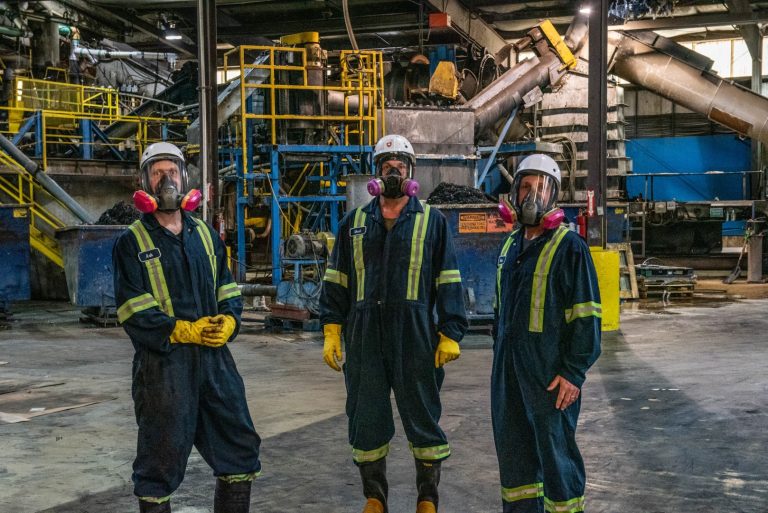
What inspired you to leave Seattle and come work for KC in this type of environment?
Aside from doing something meaningful with an impactful company, and putting aside the adjustment of working with lead – that was new to me – it was a massive business opportunity. If you look at the export of spent use lead-acid batteries in America and Canada, there didn’t used to be any, until about four years ago – and now every year it increases. We’re in a geography where there’s the least capacity for the amount of spent batteries created. So there’s the opportunity to grow KC Recycling – the only place in the Northwest to recycle those batteries – and also do something really important, which is capture that lead, keep it here, and do the circular economy thing. People built this circular process years ago, and then it started to fall apart because we haven’t built the recycling capacity to keep up with the growth of our lead-acid battery production. In the future I’d love to see KC Recycling capturing all the batteries that used to leave the Pacific Northwest ports for Asia.
And one other personal thing inspired my move here: lifestyle. I used to spend every weekend in the mountains at our cabin near Seattle; our family skied all winter and went mountaineering all summer. So the opportunity to come to live in the mountains instead of only going there on the weekends was incredible. My wife is from Alaska, so she feels at home in the snow, my daughter is on the Red Mountain Racers, and my son is a great skier, too. We also have a bike “problem” – like most people in Rossland – and we do a lot of climbing, hiking, camping, and canoeing.
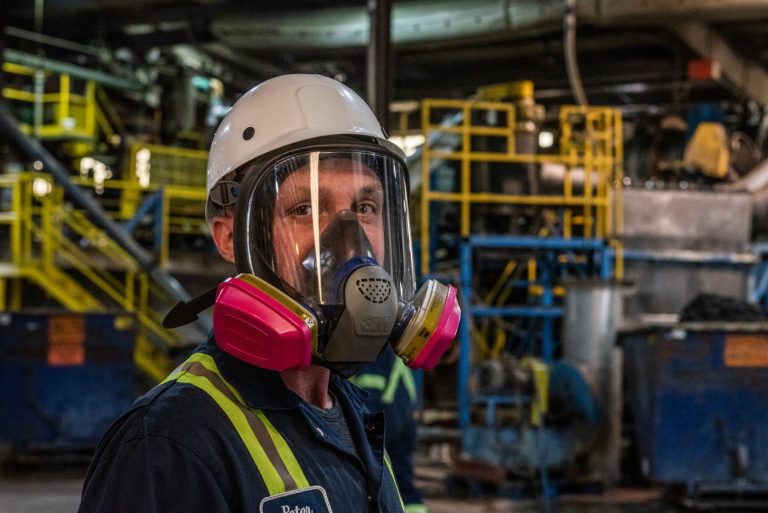
Lifestyles have changed globally during COVID-19. How has KC Recycling pivoted during the new conditions?
KC Recycling is a required essential business and easily adapted to address COVID concerns. Due to the nature of the work, hygiene and safety has always been a part of what we do; all employees already use respirators, coveralls, and gloves daily. Additionally, to allow physical distancing in break rooms and changing rooms, we’ve staggered start times and break times. We also provided all employees with disposable masks to use at home to help keep themselves and their families safe. We all feel very fortunate to have the opportunity to step up and serve our community, with safety as our top priority.
With operations running smoothly and the business growing, what is KC Recycling hoping to achieve in the next five years?
There are a number of things; we actually just rolled out our company mission and values. The first is that we are recognized as the best place to work in the Kootenays. I heard a rumour that our reputation wasn’t the greatest, and I like a challenge! I know we can do it. It’s a great company that does great stuff, and if we keep going I’m sure we’ll be one of the best. The second is that I expect safety to be something that’s automatic in everyone’s mind; I want to set the industry safety standard. We had some high-level visitors from a huge company the other day, and one of the superintendents complimented us three times on our amazingly clean and safe operation. That felt good; it means we’re making progress and changing our reputation. Third, we want to become more significant in the circular economy. Whether that’s increasing battery recycling capacity in the Northwest or going after other materials, we need to increase and grow our processing ability.

